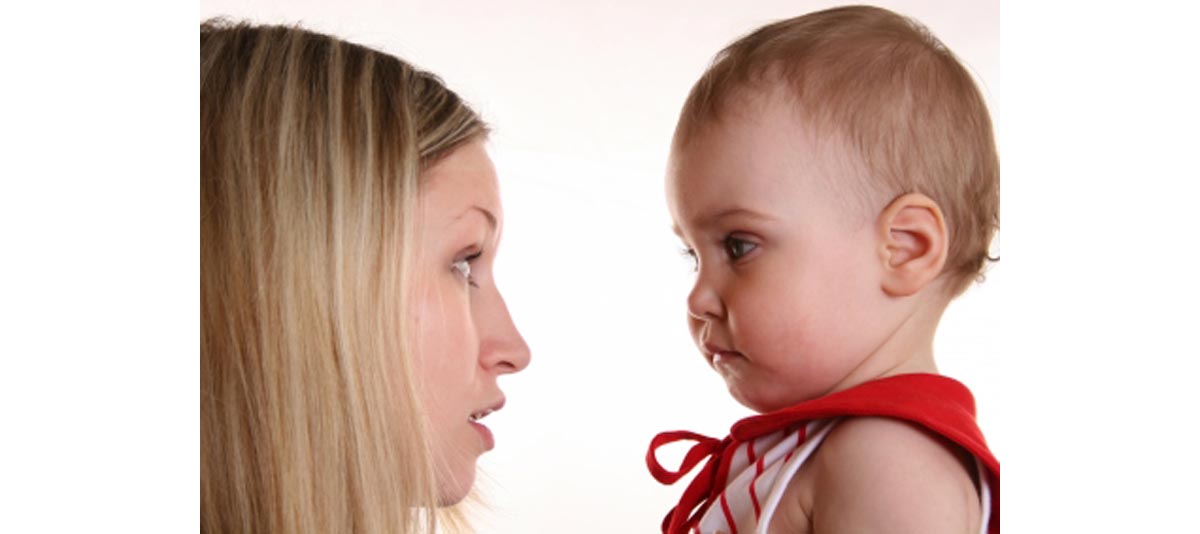Table of Contents
Before we can address criticisms against co-sleeping, we will have to define exactly what it means. Generally, when you read about co-sleeping, whoever is writing about it means a situation in which parents share their bed with their baby. The technical term for that is in fact bed-sharing, while co-sleeping is defined as sleeping in close proximity to the baby — which usually translates to sleeping within the same room, either with the baby in its own crib or bassinet, or in the parents' bed.

Nobody has an issue with parents who choose to place their baby's crib in their bedroom. This practice offers many obvious benefits, all related to having quicker access to your baby and being able to monitor their health more easily.
For the purposes of this article, the terms co-sleeping and bed-sharing are interchangeable as they generally are in conversations about the topic. So, what's the issue with bringing your baby into your bed?
The most authoritative voice against bed-sharing by far is the American Academy of Pediatricians (AAP). The AAP, concerned about Sudden Infant Death Syndome (SIDS), advises parents to place their newborns on their backs to sleep and to have them sleep in their own crib. The AAP advises against bed-sharing because it is concerned about the potential risk of suffocation.
- Yet, almost all of the 2500 babies who die from SIDS in the United States each year die in their crib. So far, that has not been a reason to advise against crib-sleeping.
Some parents are naturally very heavy sleepers, while others have sleep disorders that prevent them from waking up easily. Some of these even sleep walk, or move around in their sleep heavily. Others are obese, and there may be something to be said for the theory that these are more likely to suffocate their baby — though there is no scientific evidence to confirm this.
Risky behaviors parents engage in
Co-sleeping advocates are, unsurprisingly, quick to point out that it is not bed-sharing that is dangerous in most these cases, but the risky behaviors parents engage in. Parental smoking is always bad for a baby, and drugs and alcohol definitely impair your ability to parent. Sleep disordered or obese parents should honestly evaluate their situations and should probably not share their bed with their beloved baby, for their own safety.
Besides safety concerns about co-sleeping, there is one other concern, namely that the baby will “never start sleeping in its own bed” and that co-sleeping is not psychologically healthy for parents and children.
When we hear this, it may be useful to remember that most parents and children throughout the world co-sleep, and that there may be no other options due to lack of space, as many families still live in one-room houses, or in homes that they may share with multiple generations of their families. I have never heard of a college student who still wants to sleep with his mom and dad, so I am personally not concerned about this. Those who are worried probably still recognize that this is a parenting decision like any other; up to the parents to make.
How You Can Make Bed-sharing Safe
Have you decided that you are going to co-sleep with your baby? You are by no means the only parent making this decision. It is, of course, your responsibility to keep your child safe. Here are some practical suggestions that will increase your baby's safety while you bed-share.
Actually, just don't get drunk and don't smoke cigarettes while you are caring for a baby at all, wherever your baby sleeps. Having a (as in one) drink once in a while is unlikely to cause a problem, however.
Once you know that you meet the “safety requirements” for bed-sharing, take a look at the conditions in your bed itself. First of all, the bed should be big enough — King-sized beds do the trick if you want to co-sleep. Having only two pillows in your bed, one for you and one for your partner, is best. These pillows should be firm and relatively small, so that they do not pose a suffocating danger to your baby.
You should also avoid heavy blankets and multiple blankets. Place your baby in an infant sleeping bag, and do not rely on your own blanket to keep the baby warm. Some parents like to move their pillows down a bit, so that they can place their baby's head higher up in the bed. This ensures that your baby has nothing to do with your blanket, which is arguably the most dangerous thing in your bed.
Do not place the baby in between you and your partner while you are all asleep, but instead next to one of the parents — usually the mother, especially for breastfeeding families. Do make sure that your baby cannot fall out of bed, or roll over to get stuck between the mattress and the wall or some other similarly dangerous situation. You can consider using either a co-sleeping crib that is attached to the parents' bed and can be easily reached, or a co-sleeping basket that is placed inside your bed. These products can be found easily on the internet. Not every co-sleeping family chooses to use these items.
Finally, if you are also co-sleeping with an older child, make sure that the siblings do not sleep next to each other. Children will have a much deeper sleep than new parents who are intuitively watching out for their baby's movements.

